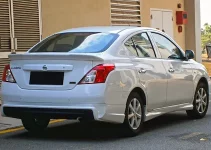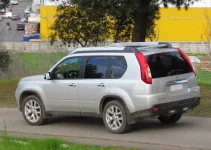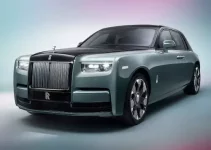Naira keeps losing value while inflation keeps increasing. Financial experts keep advising and nodding the government to make policies that will enhance purchasing locally made products. This is the reason why the Nigerian Price team has decided to write about locally-made automobiles in Nigeria.

The automotive industry in Nigeria can be traced down to the 1950s when the first passenger cars and commercial trucks were manufactured. When the federal government established a joint venture partnership with foreign automakers to assemble vehicles and provide technical assistance towards integrating vertically within the local industry, the industry saw significant development during the oil boom of the 1970s.
The passenger vehicle brands in question are Peugeot Nigeria Ltd and Volkswagen. However, around the mid-1970s and early 1980s, foreign brands dominated the sector and assembled components while knocking down parts acquired from elsewhere effortlessly.
Despite the dominance of foreign Companies, Nigeria still has automobile manufacturers who have managed to thrive amidst the high influx of used foreign cars like Toyota, Mercedes, and Honda.
For education and clarity’s sake, we have divided the list into indigenous and foreign vehicle manufacturers.
Indigenous Automobile Manufacturers in Nigeria
1. Innoson Motors
Innocent Chukwuma, popularly known as Innoson Motors, is an indigenous car manufacturer who rose from a motorcycle spare parts trader to a big name in the Automotive industry in Nigeria and Africa as a whole.

Its automobile division (the IVM), which is a subsidiary of Innoson Group of Companies, was established in 2007 and was recognized as the first indigenous car manufacturer in Africa by the administration of former President Goodluck Ebele Jonathan, who commissioned the company on the 15th of October 2010.
Innoson has its head office in Nnewi, Anambra state. The auto company has scaled up its production capacity and now produces over 10,000 units of mini & midi buses, garbage-collecting vehicles, and pick-up trucks annually.
2. Nord Automobiles Limited
Ajayi Joshua Oluwatobi is the founder and CEO of Nord Motors. He is also a renowned entrepreneur and co-founder of Jetvan Automobiles Limited, a recognized dealer of Mercedes-Benz Sprinter in Nigeria.

Currently, the company has its headquarters in Lagos. Some of Nord’s models are Nord A3, Nord Max, Nord A5, Nord Flit, among others. The company aims to re-establish Nigeria as a car manufacturing country once again.
3. Coscharis Motors
This company is one of the most popular assembly plants for luxury cars like BMW, Morris Garages, Ford, Rolls-Royce, Jaguar, Land Rover, and MINI vehicles.
Nord completed its ultramodern plant with a production capacity set to churn out over 10,000 vehicles annually. The company has so many showrooms and Aftersales services across Nigeria with its head office situated in Lekki, Lagos.
4. Lanre Shittu Motors (LSM):
Since trucks have been a part of Nigerian culture since before the country gained its independence, LSM is committed to providing Nigerians with these vehicles at reasonable prices.
LSM is owned by Lanre Shittu. This company produces more than 150 trucks a month.
Foreign Car Manufacturers in Nigeria
Peugeot Nigeria
One of the foremost auto parts assembly plants in Nigeria is owned by Peugeot as stated in the story narrated earlier in this post. The company has been a joint venture between Peugeot and the Nigerian government since 1969, and it is still functional today in Kano despite the different challenges faced.
The federal government later sold its equity stake in this partnership to ASD Motors, making the new shareholders one of the owners.
Globe Motors
Globe Motors is owned by William Anumudu, who is popularly known as Eze Igbo na Ikoyi. The automobile firm was introduced into the Nigerian markets in 2018. The Japanese manufacturer, Hyundai, partnered with its major distributor in Nigeria to launch its very first auto factory in the country.
Since then, several Hyundai vehicles, including the Accent and Elentra, have been produced in Nigeria. Apart from that, Globe has a portfolio of cars from some other brands like Mercedes-Benz, Toyota, and Higer.
Stallion Motors
The Federal Government sold Stallion Motors its ownership stake in Volkswagen of Nigeria Limited in a clear attempt to privatize the economy.
With this acquisition, Nissan vehicles assembled domestically were first introduced to the market in 2014. The fact that these cars were made locally and available at a cheaper rate caught the eye of some government officials who later approved the brand as an official government vehicle.
Dana Motors
DANA, as we all know, is not just into the Airline; they are also into the Automobile Industry. It has a factory where it produces mainly Kia cars, especially its make called Kia Rio, which became customers’ choice.
Challenges faced by the automotive industry in Nigeria:
- Heavy reliance on imported vehicles and parts
- High cost of production
- Poor Electrical Supply
- Limited skilled manpower
- Serious competition from tokumbo vehicle imports
- Poor supporting infrastructure
- Limited access to finance
- Inconsistent Government Policy
- Instability in foreign exchange rates
- Security concerns
Overcoming these challenges will be key to the growth of automotive manufacturing in Nigeria.
Check Prices of Vehicles in Nigeria
- Nord Motors Prices in Nigeria (July 2024)
- Nissan Qashqai Prices in Nigeria (2024)
- Nissan Almera Prices in Nigeria (2024)
- Nissan X-Trail Prices in Nigeria
- Bugatti Veyron Prices in Nigeria: July 2024
- Rolls Royce Prices in Nigeria
- Car Battery Prices in Nigeria
- Mack Truck Prices in Nigeria (Updated)
- Prices of Michelin Tyre in Nigeria
- Nissan Micra Prices in Nigeria (2024)
- Gear Oil Prices in Nigeria
- Kia Cars Prices in Nigeria (2024)
- Mini Cooper Prices in Nigeria (2024)
- Mini Bus Prices in Nigeria
- Innoson Motors Price List (July 2024)
- Toyota Corolla Prices in Nigeria: 2024 Trends & Buying Tips
- Cost of Clearing Cars in Nigeria (2024)
- Lexus GX 460 Price in Nigeria (July 2024)
- Lexus LX 570 Price in Nigeria (July 2024)
- Price of Lexus RX 350 in Nigeria (July 2024)
- Lexus ES 250 Price in Nigeria (July 2024)
- Lexus RX 300 Price in Nigeria (July 2024)
- Nissan Cars and Prices in Nigeria
- Toyota Camry 2006 Price in Nigeria (July 2024)
- Toyota Camry 2005 Price in Nigeria (July 2024)
- Toyota Corolla 2006 Price in Nigeria
- Lexus RX 330 Price in Nigeria (July 2024)
- Lexus GX 470 Price in Nigeria (July 2024)
- Lexus Cars and Prices in Nigeria (July 2024)
- Toyota Camry Price in Nigeria: 2024 Buying Guide
The Nigerian automobile manufacturing industry is growing daily, with the majority of these companies producing motor spare parts, fixing broken vehicle components, revamping used cars, and assembling imported car parts.
Wrap Up
According to the information given by nairametrics, there were roughly 11,547,236 vehicles registered in Nigeria as of the third quarter of 2017., the automotive industry in Nigeria has developed, and the country is gradually becoming able to boast of local assemblers of cars, some of which are even indigenous. The industry has witnessed a series of challenges, but the growth of the auto industry is improving daily.





